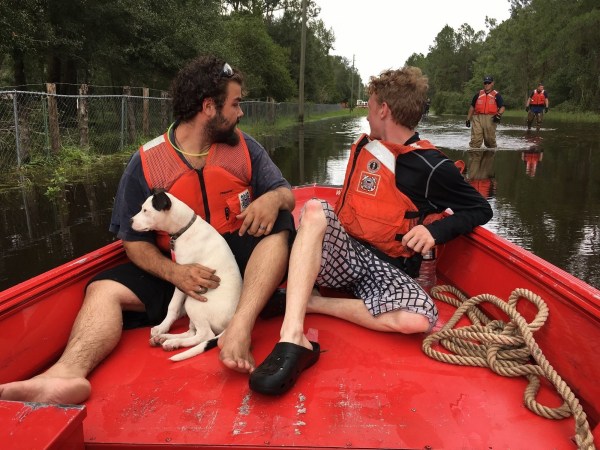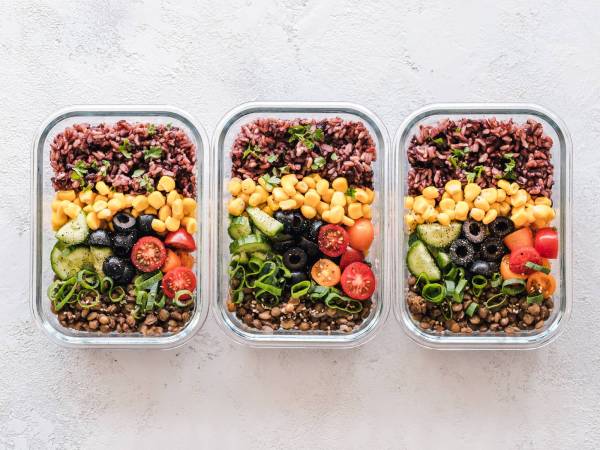

People in many parts of the US have had to deal with disaster after disaster over the past few months. On top of the COVID-19 pandemic, hurricanes in Louisiana, wildfires in California, and tornadoes in the Midwest have made life dangerous and difficult. And with climate change creating wilder weather conditions each year, it’s an unfortunate reality that you should start thinking now about how to prepare for the next catastrophe.
Power outages are all too common when the weather gets extreme—blizzards, hurricanes, wildfires, tornadoes, earthquakes, and far more can leave you in the dark for days or weeks. A long-term power outage can be much more than an inconvenience, especially for those who now keep heavy-duty, life-sustaining medical equipment in their homes instead of staying in hospitals, according to Jeffrey Schlegelmilch, director of the National Center for Disaster Preparedness.
No matter where you are, it’s possible that you could be affected by unexpected natural disasters, so it’s better to be safe than sorry. Start preparing now.
Know your escape route
Getting to a safe location with power instead of hunkering down is your best bet when there’s a blackout. Long before a disaster even happens, you should make sure you have planned an escape route and know what emergency resources—food, shelter, and medical—are in your area.
Keep a list of the phone numbers and addresses of close friends or family members whose homes you can drive to, but also make sure you know about nearby shelters in case you’re not able to drive off or if your loved ones are also without power. You can reach out to emergency managers in your area to find out where shelters will be and how many people they are prepared to provide for.
Planning ahead is particularly important if you or a loved one is part of the growing population that keeps medical equipment at home. Without a plan, you or they are likely to end up receiving medical care in a hospital, which should be a last resort, Schleglmilch says. That also risks overwhelming hospitals, which end up having to accommodate lots of people who don’t have a place to plug in their equipment.
Get a generator
If you do end up trapped at home during an outage, though, a generator is a valuable investment. Buy one, and you’ll be able to keep your lights on, personal devices charged, and refrigerator running, for a few hours to several days, depending on the size and type of generator you get.
The most common are gasoline-powered, which you can either hook up to your home’s gas supply, fill up, or connect to an external gas tank. Some models will turn on automatically when the power goes out. Battery-powered options are also available, and these don’t emit dangerous exhaust fumes.
“After a lot of disasters we see a lot of deaths from people with carbon monoxide poisoning because they keep the generator in the garage or pointing the wrong direction, towards the home,” says Schlegelmilch.
So if you do decide to purchase a generator, make sure you’re properly following safety instructions and only using it when absolutely necessary.
Install a heavy-duty freezer
When you think about preparing for disasters, having enough food and water to get you through the event is probably the first thing that comes to mind. But if you stock up on food only to have it go bad in the powered-down fridge a few days later, you’re out of luck.
One way to keep your food cold longer is to get a chest freezer, which taps into your home’s power supply just like a normal fridge or freezer. However, they’re much more heavily insulated, so they’ll hold their chill for significantly longer. That way, when the power goes out, you can just throw all your perishables inside to avoid waste.
Think about how you’ll stay entertained and connected
In the midst of a blackout, safety isn’t the only thing you’re going to be worried about—many of us don’t know what to do with ourselves when our devices aren’t working, and no power usually means no WiFi.
Keep a portable battery on hand and charged as a backup in case your personal devices’ power reserves get low. Prepare now for a lack of internet by downloading movies, books, or TV show episodes directly onto your device, or onto a separate hard drive to keep your device’s memory freed up. You could also pick up a battery-powered light and catch up on reading the actual, physical books you haven’t gotten around to yet.
If you feel like you’ll need your WiFi no matter what, you can get a MiFi device that will plug into your laptop or another gadget and create a mobile hotspot by tapping into a 3G or 4G network. Then, you can just use your phone and other devices as you normally would. If you have cell service and data to spare, you can also use your phone as a hotspot.















